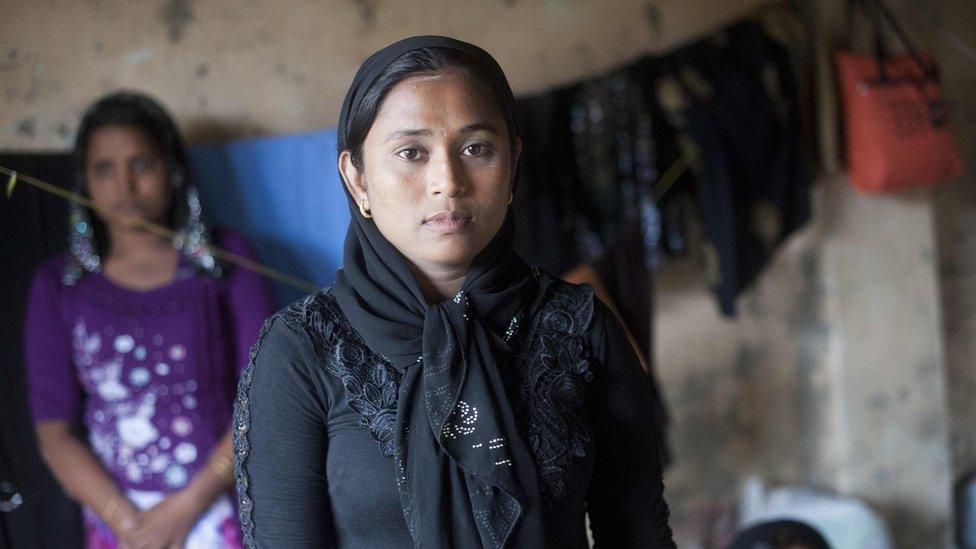Rakhine unrest leaves four Myanmar soldiers dead
- Published
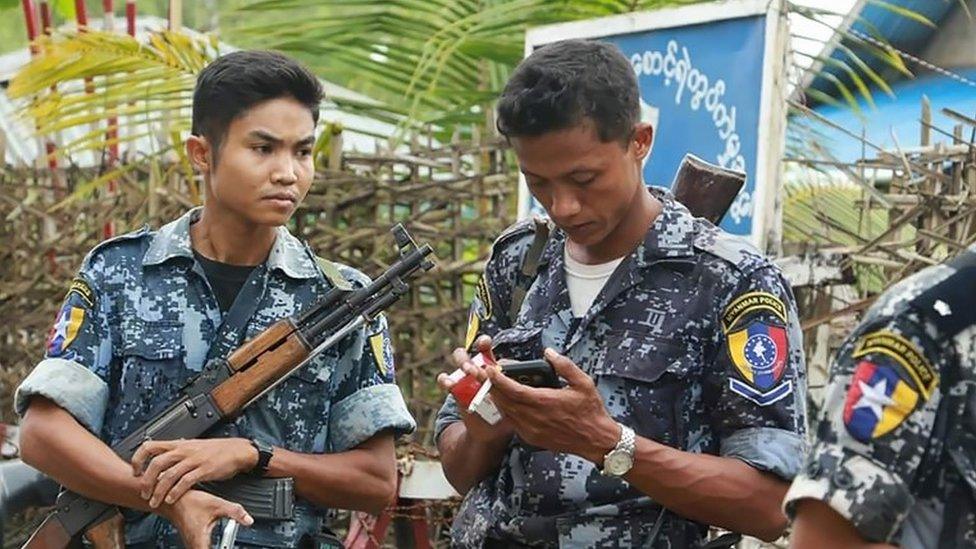
It is not clear who this newly active armed force in Rakhine is
At least four soldiers were killed in a third day of clashes in Myanmar's troubled Rakhine state on Tuesday, the army said.
State media said the soldiers were attacked by 300 men armed with pistols, swords and knives.
Nine police officers were killed in co-ordinated attacks at the weekend along Myanmar's border with Bangladesh.
Rakhine has seen long-running tensions between Buddhists and the mostly Muslim Rohingya minority.
The BBC's Jonah Fisher in Yangon says it is not clear who is behind this newly active armed force in Rakhine, but the Rohingya are being blamed for the attacks.
If that is the case, it would mark a worrying new phase of the crisis in Rakhine state, our correspondent adds.
Journalists are not being allowed in the area.
In 2012, communal violence gripped Rakhine, killing more than 100 people and driving thousands of Rohingya into refugee camps where many still live.
The Rohingya say they are descendants of Arab traders and have been in Myanmar for generations.
But many among the Buddhist majority believe they are Bengali migrants, and they are denied citizenship by the government.
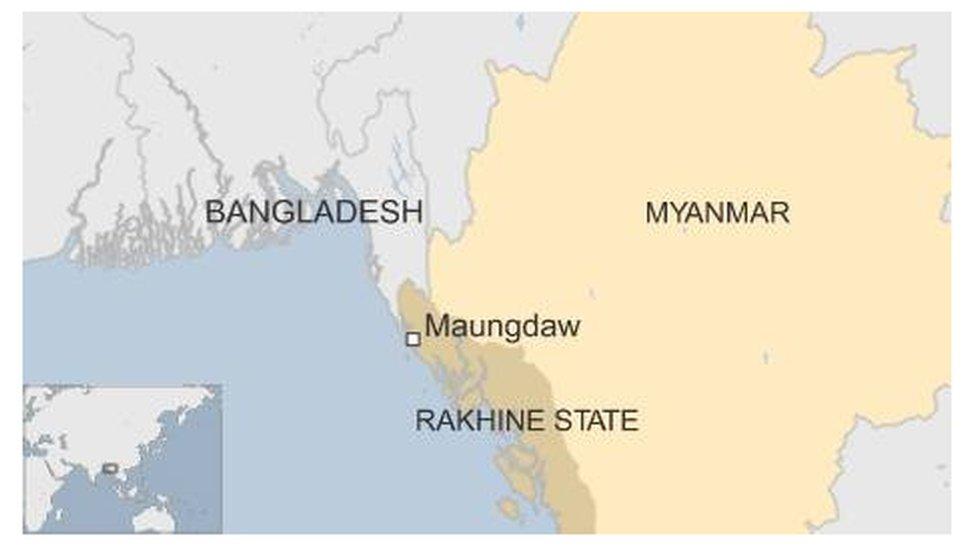
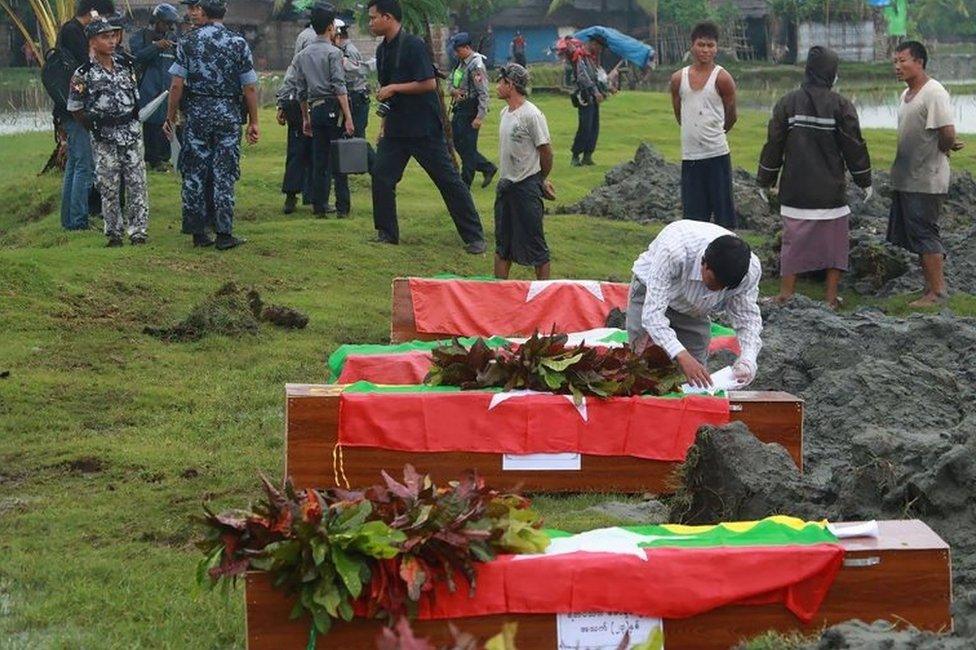
A funeral service was held for the nine police officers who were killed during co-ordinated attacks at the border
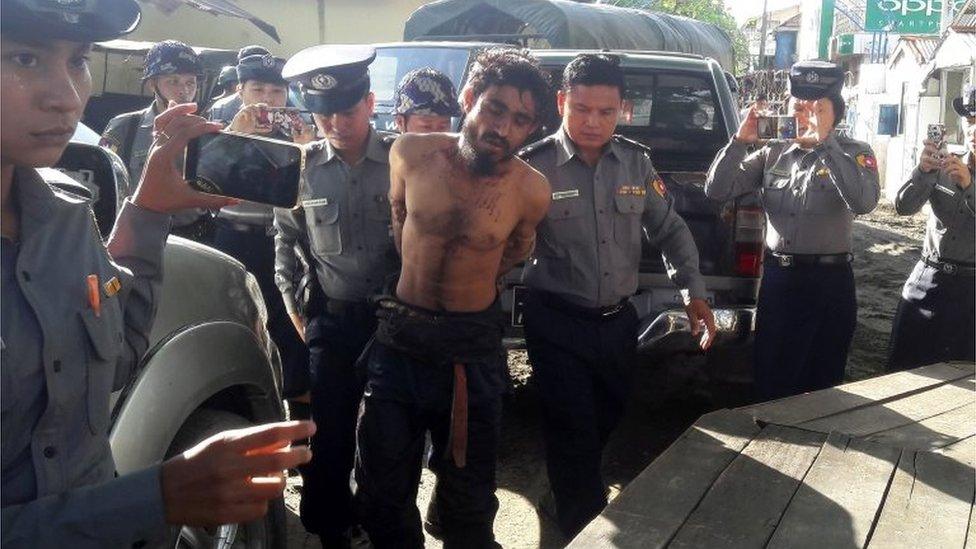
Some of the people suspected of involvement in the weekend attacks were taken into custody
Tuesday's clashes in Pyaungpit village in Maungdaw township also left one attacker dead, according to the AFP news agency.
Troops also found seven dead bodies, state media said. Witnesses told the BBC the bodies were found dumped in a mass grave.
The UN has expressed "deep concern" and asked all sides to "exercise maximum restraint".
"At this delicate juncture, the local communities at all levels must refuse to be provoked by these incidents and their leaders must work actively to prevent incitement of animosity or mutual hatred between Buddhist and Muslim communities," the special adviser to the secretary-general on Myanmar, Vijay Nambiar, said in a statement, external.
- Published9 October 2016
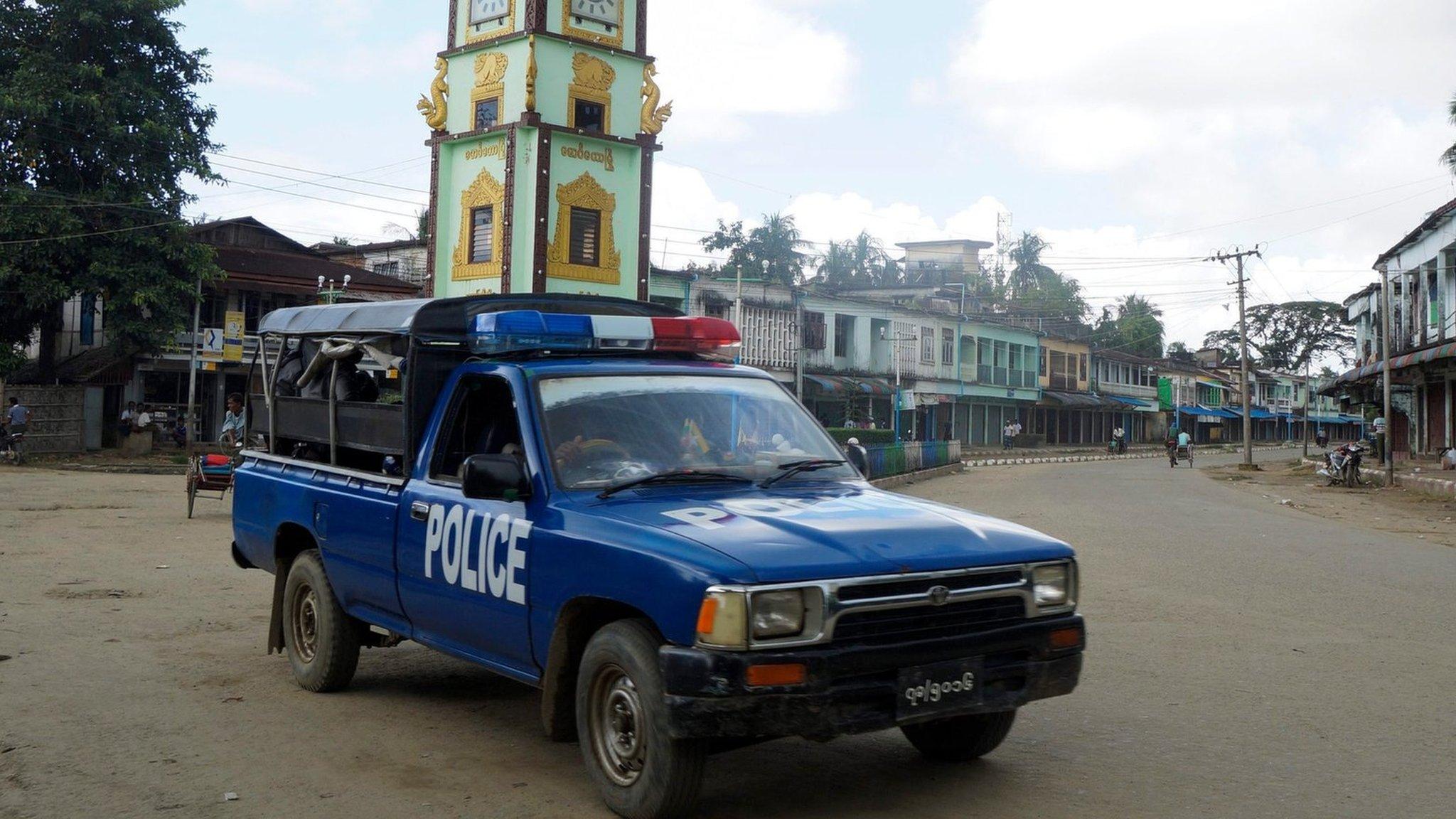
- Published16 October 2015
- Published24 August 2016
